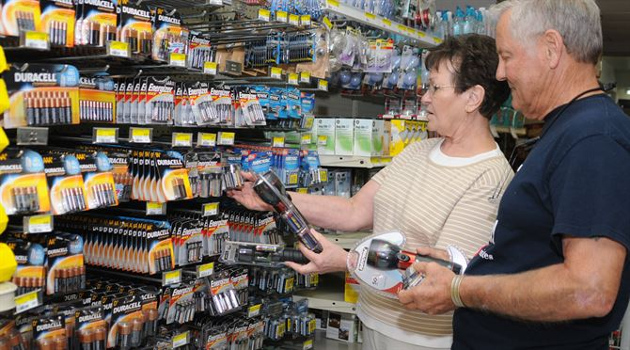I generally use Texas as a good example when discussing public policy. Particularly compared to places such as California.
I like the sensible attitude about guns, but the absence of an income tax is particularly admirable when considering economic issues, and I confess to being greatly amused when I read about jobs and investment escaping high-tax states like California and moving to the Lone Star State.
But being more pro-market than California is a low bar to clear. And I’ve written that government is too big in Texas.
And now, because of Hurricane Harvey, I have another reason to criticize the state.
Texas has a law against “price gouging,” which means politicians there (just like the politicians in places like Venezuela) think they should get to determine what’s a fair price rather than allow (gasp!) a free market.
The state’s Republican Attorney General is even highlighting his state’s support for this perverse example of price controls.
>Price gouging by Texas merchants in the path of Hurricane Harvey has drawn the attention of Texas Attorney General Ken Paxton, who said Saturday
that his office is looking into such cases. …”We’ll be dealing with those people as we find them,” he said. …Paxton issued a warning about price gouging Friday as the hurricane approached the Texas coast. Texas law prohibits businesses from charging exorbitant prices for gasoline, food, water, clothing and lodging during declared disasters.
Paxton is right about Texas law, but he is threatening to enforce a terrible policy.
To help explain why Texas law is bad and why the Attorney General is misguided, here’s a video from John Stossel on so-called price gouging.
It’s disgusting that Mississippi arrested John. The guy should have received a medal for putting his money at risk to serve others.
To augment Stossel’s analysis, here’s a video from Learn Liberty that explains why politicians shouldn’t interfere with the price system.
And here’s Walter Williams discussing the role of “windfall profits” and how high returns encourage the reallocation of resources in ways that benefit consumers.
The bottom line on this issue is that buyers understandably want low prices, particularly in emergency situations.
But that makes no economic sense. However, since buyers generally outnumber sellers, politicians will always have an incentive to demagogue on the issue.
I’m not surprised when we get economic illiteracy from certain politicians. Nonetheless, it’s very disappointing when Texas lawmakers sink to that level. I hope Mr. Paxton at least is feeling guilty.

